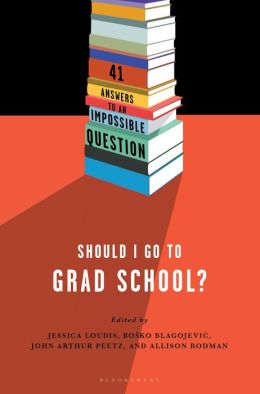Beyond the University: Why Liberal Education Matters, by Michael S. Roth (Yale University Press). The Press explains:
Contentious debates over the benefits—or drawbacks—of a liberal education are as old as America itself. From Benjamin Franklin to the Internet pundits, critics of higher education have attacked its irrelevance and elitism—often calling for more vocational instruction. Thomas Jefferson, by contrast, believed that nurturing a student’s capacity for lifelong learning was useful for science and commerce while also being essential for democracy. In this provocative contribution to the disputes, university president Michael S. Roth focuses on important moments and seminal thinkers in America’s long-running argument over vocational vs. liberal education.
Conflicting streams of thought flow through American intellectual history: W. E. B. DuBois’s humanistic principles of pedagogy for newly emancipated slaves developed in opposition to Booker T. Washington’s educational utilitarianism, for example. Jane Addams’s emphasis on the cultivation of empathy and John Dewey’s calls for education as civic engagement were rejected as impractical by those who aimed to train students for particular economic tasks. Roth explores these arguments (and more), considers the state of higher education today, and concludes with a stirring plea for the kind of education that has, since the founding of the nation, cultivated individual freedom, promulgated civic virtue, and instilled hope for the future.Should I Go to Grad School? 41 Answers to an Impossible Question, edited by Jessica Loudis and others (Bloomsbury). A description from the Press:
The decision to attend graduate school is easy for future doctors and lawyers: they must have a professional degree to get started. But for young creative workers, aspiring artists, and intellectuals, grad school is an existential fork in the road. An M.F.A. or a humanities Ph.D. can give you time to invest in studying something you love among like-minded intellectuals and qualify you to teach a new generation of students; but it can also uproot you geographically, expose you to backstabbing competitors, and saddle you with debt. Given the current job market, is grad school really worth it—financially, professionally, and emotionally?
In Should I Go to Grad School?, a wide range of people who lead intellectually and creatively interesting lives—sculptors and philosophers, activists and poets, a cocktail designer and a movie star—tell their own stories about choosing to go to grad school—or steering clear—and what that decision has meant in their lives. They give us an inside look at what grad school today is really like, and share the wisdom they wish they could have had going in. They reflect on their divergent paths to success, and muse about the path not taken.
With contributors including David Orr, James Franco, Simon Critchley, Terry Castle, Sheila Heti, and many more, Should I Go to Grad School? is a must read for anyone seriously considering that titular question.

